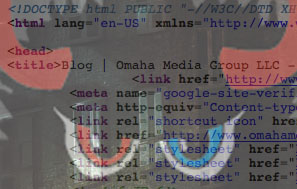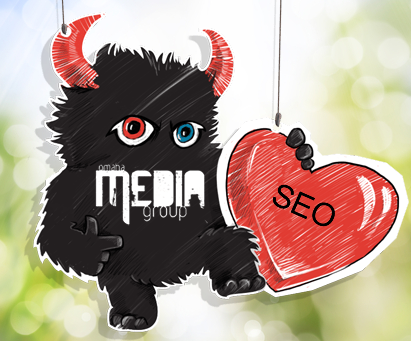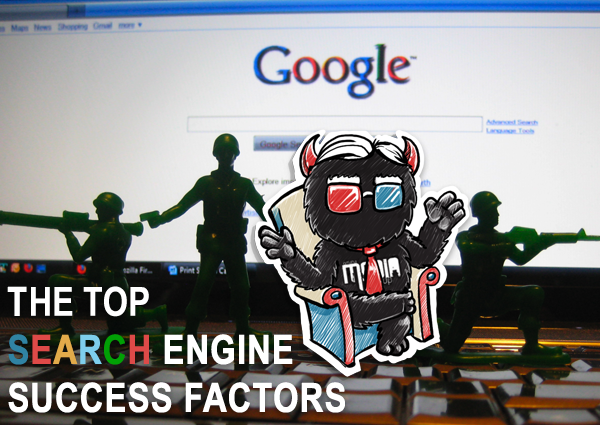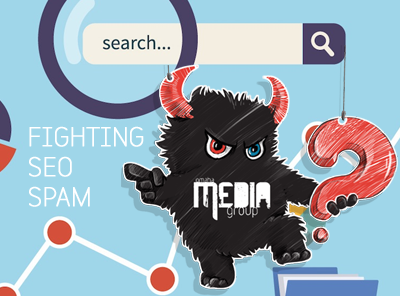 https://www.omahamediagroup.com/images/uploads/monster_gallery/Omaha-Media-Group-Black.jpg
admin
https://www.omahamediagroup.com/images/uploads/monster_gallery/Omaha-Media-Group-Black.jpg
admin
Search Engine Inclusion - Proper Meta Tag Use

Being the bonafide Google Developers we are we are often asked about how we go about conducting our search engine optimization and marketing strategies. These questions usually revolve around the proper use of keywords, site maps and robot texts, so to help those of you whom have been tasked with your own search engine optimization and marketing for your own websites we thought we'd write a quick article to help you on your way.
Search Engine Marketing a Rocket Science?
Thankfully Search Engine Marketing isn't rocket science, or is it? Yes, like painting a room in your house, servicing your car, anyone with the right initiative can perform their own search engine marketing with little ease using basic knowledge. In fact with just a little bit of search engine inclusion understanding, the right tools, and a lot of time you yourself can learn to become a search engine guru. The question is, do you have the time it takes to maintain your results? Probably not, which is why like the rest of our other search engine marketing customers you come to us to manage your search engine strategies for you.
But for those of you who want to try and perform your search engine marketing we put this article together to help you understand search engine optimization basics to get you started on your way to search engine wizardry.
Search Engine Optimization - Meta Data / Meta Tags
Simply put Metadata is information about data. Meta tag provides metadata about the HTML document to the search engine crawler and is never displayed on the page but remains machine parsable and is read by the search engine.
Meta Tag elements are typically used to specify page description, keywords, author of the document, last modified, and other metadata. This metadata can be used by browsers (how to display content or reload page), search engines (keywords), or other web services used during the inclusion process.
There are dozens and dozens of metas tags all which can be used to deliver information to the search engine, the most typically used tags are:
Although the above meta tags are typical, as we already mentioned in our "Google Farmer/Panda Update Killed The Ranking Star" earlier this year the and tags are no longer essential to retrieving a good inclusion / rank within most search engines. In fact, Google would rather you NOT include and depending on the type of search engine strategy you are executing can even hurt your inclusion / rank. We will expalin in more detail below, read on...
So what are the essential keywords for obtaining a good organic inclusion for your website? We're glad you asked, they are:
The first most important meta tag would be your site verification tag, issued by Google exclusively for your website during manual inclusion. This tag singly handedly tells Google that you are in fact a real website with valid content and there is a physical person maintaining the content of this website. There are of course a whole slew of other benefits to having a verifiec website but we'll let you read about them from Google's website.
The title tag is just that, the TITLE of your website. This tag's metadata is delivered to the browser's header and is by far the second most important tag you can use to be indexed correctly. The title tag is where we place the Keywords that we would have normally entered into the outdated meta tag referenced above. Since it is our goal to make the crawler's life easier when crawling our website and Google specially tells us they don't want us to tell them what our website is about / that Google specifically wants to be able to decipher the page content themselves via your website's content we will trust Google to do it's job. This is a job that since February of this year Google does VERY WELL.
Let us say that again: Google DOSE NOT want you to tell them what your page is about via meta tags. Google wants to figure that out themselves via your page's content. This is one of the many reasons which drove them to create and release Panda/Farmer in the first place. This is by far one of the most misunderstood search engine optimization tactics by most web companies out there who claim to be SEO/SEM experts. Most failing to realize that the use of the and tags can essentially can hurt your inclusion, especially once the page's content has changed over the span of time. It's this easy, Google is Google, who are you to tell Google what and who you are? Forget about it..
Eliminating Unnecessary Meta Tags
To summarize the above brain spewage: Meta tags are an integral part of every webpage within every website and "most of the time" it is imperative that you take utilize necessary meta tags to best optimize your website for inclusion value/rank. However, since the release of Google Panda/Farmer earlier this year, there are some meta tags that in our experience, hamper or slow the process of Google and other search engines from crawling through your website.
If these meta tags are no longer relevant, then why on earth would we want to waste Google's time crawling through a portion of a website that is irrelevant? This is exactly why we are going to tell Google to focus on your relevant content and to bypass the irrelevant tags, css, and javascript that would otherwise prevent Google's crawler from ever making it to the meat and potatoes of your website.
Here are some tags that we definitely recommend you remove from your website:
This tag tells browsers to not store a website in cache so it loads quickly the next time it is visited. Most browsers already give users the option as to whether they want for it to check for newer versions of the pages when visiting a website so it is best to leave it up to the person viewing your website. Don't waste Google's time with this meta tag.
This meta tag specifically tells the browser when a page expires and at that point in time, the browser will look for newer version of content upon every visit. Again, best to leave this functionality option to the user and don't waste the search engine crawler's time using this tag.
This meta tag disables the old image toolbar that used by Microsoft Internet Explorer. Give your search engine's crawler a break, this is not essential so do not crowd this into your meta coding.
This tag can be used to restrict the crawler on how it crawls your website. This has since been replaced with the use of robots.txt file.
Summarizing the Confusion
Wow, that seems like a lot to know about keeping your website optimized and/or search engine friendly isn't it? And those are basic principles too. Yikes you think to yourself… Never fear where there is a will there is a way and with a little reading, practice, and more reading and practice you will soon find yourself a search engine guru and will still probably be confused as ever. Why? There is an endless array of knowledge when it comes to search engine strategy and because all of those crafty blogs and articles you are going to find will have everyone preaching different strategies and/or different approaches to how they conduct their search engine optimization and marketing. Are they wrong? That's a tough answer. Why? Because each company will have their own strategy and they just might be right with in the context of their strategy.
When it comes to a good search engine strategy we know what works best through our own experience and analytical data, all of which comes to us directly from Google. 😉
Have you found yourself lost in search engine optimization and marketing land and would like some assistance getting your strategy on track? Call us, we manage SEO/SEM for small, medium and large companies just like yours and would LOVE to assist you too!

Monstrous Media Group LLC
MONSTER Creative Management
PO BOX 390640
Omaha, Nebraska 68137
(800) 601-6765
Hire the team to help you with your website, app, or other marketing needs.
We have a team of digital marketers who can help plan and bring to life all your digital marketing strategies. They can help with social media marketing, email marketing, and digital advertising!
CONTACT US




Comments